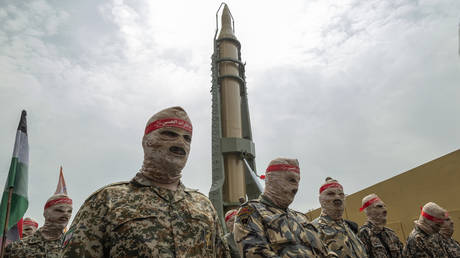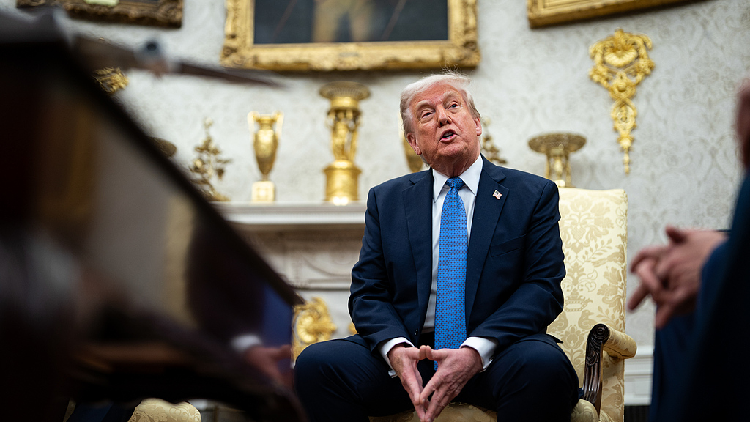Did Iran Just Conduct a Nuclear Test?
A recent tremor in Iran resembling an earthquake has led to speculation that the incident may have been indicative of more than just seismic activity, with suggestions that Tehran could have conducted a bomb test.

On the evening of October 5, tremors registering a magnitude of 4.6 on the Richter Scale were felt even in Tehran, over a hundred kilometers away from the epicenter. While this was not a major event in the context of earthquakes—there were no casualties and the intensity was relatively low—it has drawn significant international interest due to the uncertainty surrounding its cause.
Following the tremors, discussions intensified regarding the possibility that they were indicative of an underground nuclear test rather than a natural earthquake, with speculation prevalent across both traditional and social media platforms. In Iran, however, the Tehran Times reported that “seismologists and […] authorities” have denied that a nuclear test took place, adding that “CIA Director William Burns also said there is no evidence that Iran has decided to build a nuclear weapon.” This assertion, particularly given the historical skepticism of Iranians toward CIA claims, adds an intriguing layer to the narrative.
One could certainly understand why the Iranian leadership might have reasons to stage a test designed to leave detectable traces while officially denying it: such an act could serve as a warning to adversaries while maintaining a façade of plausible deniability. Moreover, it could generate strategic ambiguity, casting doubt on the intentions of the Iranian leadership.
However, it is also conceivable that there genuinely was no nuclear test conducted. Public discussions regarding the Semnan tremors appear inconclusive for non-experts, focusing on the seismic wave characteristics and the epicenter's location. Currently, the only firm conclusion is that we cannot definitively determine the cause: it might have simply been an ordinary earthquake, even if a nuclear test remains a possibility.
To explore further, consider two fundamental questions: why does this incident matter, and what implications would it have if a nuclear test were confirmed?
The global reverberations of these tremors are evidently tied to the escalating situation between Iran and Israel, which is inching closer to wider conflict amid destructive missile exchanges. This tension is exacerbated by two primary catalysts: Israel’s aggressive military actions against the Palestinians and its recent assaults on neighboring countries, and the Western powers' alignment with Israel. In an alternate scenario where the West acted in accordance with international law and fundamental ethical standards, current conflicts might have been averted.
In this context, Iran's "Axis of Resistance" emerges as the principal counterforce to Israel's aggressive actions. Mainstream Western media often portrays this alliance as “rogue” or “terrorist,” yet it is notable that these groups are among the few actively working within the framework of the 1948 Genocide Convention to hold Israeli aggressors accountable, thereby fulfilling a core post-World War II legal obligation. The true rogue actors in this scenario, it might be argued, are the West and Israel themselves.
Without the support of the "Axis of Resistance," the Palestinian resistance would likely lack the necessary backing in its struggle. This stark reality positions Iran as a crucial player, making its military capabilities particularly significant. Although Iran's air force is less modern than Israel's, its missile strength is formidable. A recent attack involving 180 projectiles demonstrated Iran's ability to breach Israeli air defenses, despite U.S. support for Israel. If Iran were to launch a far-reaching strike aimed at crippling Israel's infrastructure, the consequences for Israel could be unprecedented. The fact that Israeli citizens have the option to flee exacerbates this risk, especially given Israel’s actions that have rendered Gaza nearly unlivable. While Iran would likely refrain from pursuing such genocidal strategies, it could still alter conditions significantly for Israelis.
Returning to the implications of a possible nuclear test in Iran, it is important to recognize Israel's threats to target Iranian nuclear facilities. However, as acknowledged by an American general in discussions with the New York Times, hitting deeper underground facilities poses considerable technical challenges. Regardless, U.S. backing for Israeli actions complicates the situation; while some pushback has been noted, the reality often reflects a willingness to support Israeli initiatives, even at the expense of regional stability.
Iran is also in the process of advancing its nuclear program, with its leaders maintaining that it is for peaceful purposes. Yet it would be reckless for them to ignore their responsibility to safeguard the nation.
One complicating factor is the regular exaggeration of the potential for Iran to develop nuclear weapons, often wielded by Western politicians and media as justifications for military interventions. Publications such as the Wall Street Journal have engaged in fear-mongering narratives portraying an imminent Iranian threat, while others, like Foreign Policy, have explicitly proposed preemptive actions against Iran’s nuclear capability.
This backdrop begs caution whenever claims emerge in the West regarding Iran's impending nuclear capabilities, as they may serve as propaganda for war. Nonetheless, the reality remains that Iran might either possess or be on the brink of acquiring nuclear arms. If so, the seismic event in Semnan could have served as a message to Israel and the West: an indication that the point of no return may have been reached. This would suggest that any potential Israeli or Western incursions could carry exponentially higher risks due to Iran's potential retaliatory capacity.
While the interpretation of the Semnan tremors as a nuclear test remains speculative, the overarching concern is that if it has not happened yet, it is increasingly likely to occur in the near future. Despite earlier Iranian religious edicts against weapons of mass destruction, it seems probable that Iran is on a trajectory to become a nuclear-armed state, with changes to its stance on such weapons likely once that threshold is crossed. Should this come to pass, Western nations and Israel would need only to reflect on their own actions for understanding the resultant situation, driven by three key factors.
Firstly, the West has long utilized the ambiguous concept of a “rules-based order” to sidestep international law and the UN’s role. This framework has shielded Israel and its allies, allowing them to commit egregious acts without accountability. Such a reality necessitates that any self-respecting nation regard the worst-case scenarios to ensure its survival.
Secondly, it has become evident that alternative norms and international laws are ineffective against the "rules-based" agenda championed by Western powers. Even in light of pending litigation indicating Israel as a potential perpetrator of genocide, these accountability measures have shown little effect—demonstrating that such actors operate with impunity.
Lastly, Iran’s attempts for rapprochement with the West have been met with repeated failures. The Joint Comprehensive Plan of Action, or Iran Nuclear Deal, aimed to curb military nuclear ambitions in exchange for sanction relief; however, the U.S.’s withdrawal from the agreement and the lack of repair efforts by subsequent administrations further escalated tensions.
In conclusion, the current geopolitical landscape suggests that the conditions fostered by the West's strategic choices may compel states like Iran to pursue nuclear capabilities as a form of deterrence. As the implications of these choices unfold, the risk that Iran might consider a nuclear arsenal necessary for its national security grows ever more pronounced. The violent actions of the West and Israel seem to leave Iran—and others—no recourse but to adopt this stark approach to deterrence moving forward.
Jessica Kline contributed to this report for TROIB News












